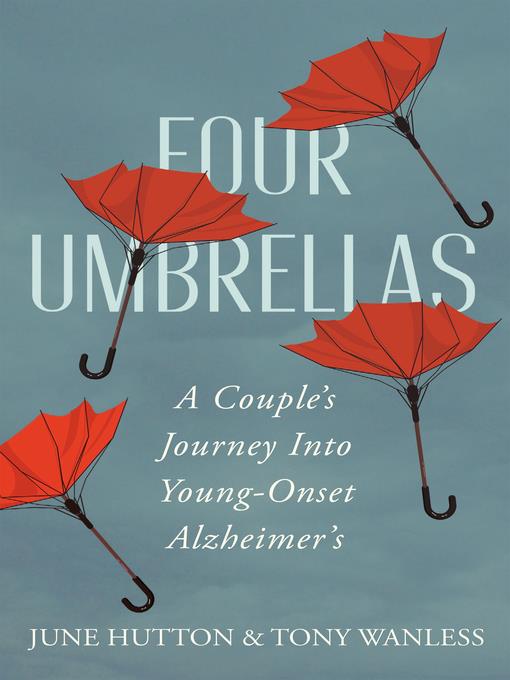
Four Umbrellas
A Couple's Journey Into Young-Onset Alzheimer's
سفر کوپلز به آلزایمر جوانان
کتاب های مرتبط
- اطلاعات
- نقد و بررسی
- دیدگاه کاربران
نقد و بررسی

September 15, 2020
A married Vancouver couple share their heartbreaking ordeal with Alzheimer's disease. After Wanless, who had suffered from depression for most of his life, left his journalism career in 2002 to work as a freelancer, Hutton, a novelist and teacher, began to notice fissures in her husband's mental foundation. After filling in the details of their lives together as writers struggling through the recession of 2008, the authors move to 2011, when Wanless, in his 50s, was becoming increasingly forgetful, confused, and irritable after suffering a minor fall at home. Hutton suspected that he'd suffered a stroke, but scans and diagnostic tests showed only mild cognitive impairment. His condition deteriorated further as the years progressed, and Hutton discovered months of unpaid bills, appliances left on, and general disorientation. This situation caused a shift in her role to both wife and caregiver, an increasingly stressful pairing that coincided with her father's declining health (her mother died in 2006). Though predominantly written by Hutton, this is very much a joint debut memoir; Wanless offers a fresh perspective in the form of reprinted emails to his wife. They diligently piece together fragmented impressions about suffering with debilitating memory loss, depression, and the "long, slow fade" that Wanless believes began when he left the newsroom behind. Finally, in early 2018, after years spent yearning for a definitive diagnosis from gerontology scans, a battery of neurological memory tests confirmed early-stage Alzheimer's disease. Throughout the text, Hutton is candid, openly admitting that a memoir isn't the kind of book she'd envisioned herself writing. Earlier in her career, she published two novels, and she now teaches writing at an addiction recovery center. The authors present a harrowing, moving seven-year odyssey, rendered in heart-wrenchingly sad yet compassionate and loving detail. Near the end, Hutton offers informative personal thoughts on dealing with dementia and Alzheimer's disease, which should be useful for readers encountering similar obstacles. Intimate, poignant perspectives on a cruel malady of the mind.
COPYRIGHT(2020) Kirkus Reviews, ALL RIGHTS RESERVED.

October 19, 2020
Novelist Hutton (Underground) and her journalist husband, Wanless, chronicle in this poignant and devastating memoir the crushing toll Wanless’s early-onset Alzheimer’s diagnosis had on their lives. After Wanless left his job as a newspaper reporter to work as a freelancer at age 52, Hutton noticed something was wrong with Wanless after he started to do things like leave stove-top burners on for hours unattended, put out his cigars in plants, and start small fires. Then, after a fall and a trip to the emergency room, he became increasingly forgetful. A harrowing seven-year odyssey followed, filled with medical exams and memory tests that ultimately confirmed early-stage Alzheimer’s disease. From here, the decline is quick and steep as Wanless experiences more symptoms to the point where he had trouble with “basic functions like word recall, mathematics and even handwriting.” The memoir skillfully weaves reflective emails from Wanless to Hutton into the narrative, allowing readers to witness step by painful step, the impact of the “long, slow fade” the disease imparts. Readers will find this insightful look into existence with this life-altering disease both educational and inspiring.

























دیدگاه کاربران